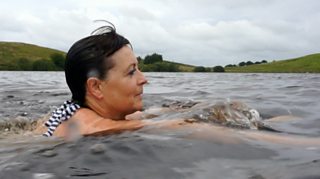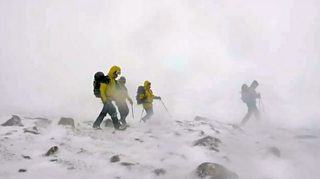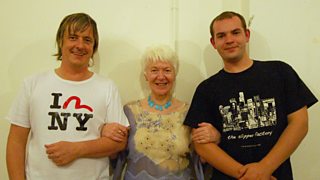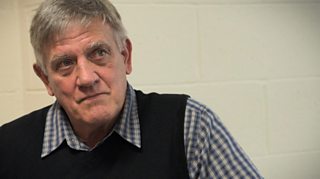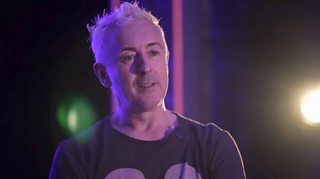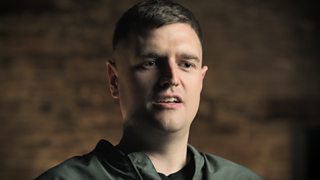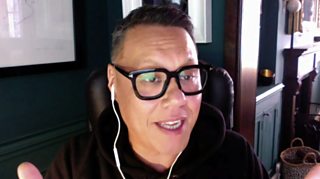Dying a good death: How to prepare yourself and others for the end of your life
28 August 2017
Like it or not, death is the inevitable conclusion of all our lives. Although it’s a normal, natural process, it isn’t an easy or straightforward thing to deal with.
Recycle my body… I gather that cadavers are a bit short in supply.Participant at a Death Cafe in Dumfriesshire
While we can’t stop death, there are things we can do.
Talk about death
If you find it too difficult to talk to family and friends about death, you could always try talking to complete strangers over coffee and cake.
At a Death Café, people who’ve never met before come together to discuss the end of life.
The idea began with an art exhibition held by Swiss sociologist Bernard Crettaz in 2004, but became a global phenomenon when Jon Underwood began hosting events in London in 2011.
Dr Naomi Richards from the University of Glasgow is researching the phenomenon and .
But Death Cafés are not the only option.
Some people hire a ‘death doula’ to assist them through this part of life. The assistance they provide varies greatly, from .
Make decisions about treatment
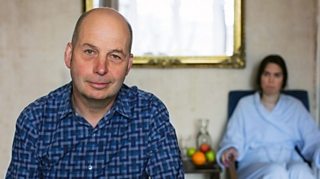
Dr Euan Paterson, a retired GP and palliative care specialist, says improved medical technology has created an issue for doctors treating dying patients.
“It’s much harder not to do something than to try and do it. We’ve got generations of doctors, me included, who have been weaned on the idea that we can fix everything.”
“The desire to constantly offer things, constantly treat, constantly improve, constantly resurrect is very hard to let get go.”
But extension of life may come at cost of quality of life.
Linda Tierney was diagnosed with terminal cancer and told she wasn’t likely to live more than a year.
She decided not to have further treatment as she felt the side effects would be too great.

Another area where patients can make decisions ahead of time is about what to do in the event of our heart stopping.
In Scotland, . Through this, we can record if we do not wish to be resuscitated.
In , Dr Dan Beckett explained the crucial difference between a cardiac arrest and natural dying.
While a cardiac arrest might be reversible through cardiopulmonary resuscitation, better known as CPR, in the case of natural death the heart stops because the body itself is dying.
Plan your funeral
Linda has played an active role in organising her own funeral, with the help of her son and a Marie Curie nurse.
The Marie Curie nurse said, ‘You’ve got a terminal illness, but you’re not dying yet’Linda Tierney
“One of the first things I asked was who’s going to do my hair? Who’s going to do my make up? And the girl at the funeral home: she thought this was amazing.
“She said ‘I am. I’ve been doing this job for 17 years and I can assure you you’re going to look the best you’ve ever looked!’
“Everything is done. Music done. Ministers been told what songs are being played. What readings I want. Everything has been sorted.”
Sort out your will
Hilary Peppiette is a solicitor who is also training to become a death doula.

She says making a will is .
“Primarily in your will you appoint executor to deal with your estate after your death, to make sure your wishes are carried out.”
“You decide who is going to benefit from your estate after your death. It is very important to put it down in writing to make sure that the people you want to be provided for are provided for.”
“It doesn’t always happen automatically the way that people sometimes think it sometimes it will. Even if you feel you have nothing to leave, you don’t have very much in the way of assets, it’s very important to write down what you want to happen.”
On ����ý Radio Scotland
-
![]()
Dr Margaret McCartney looks at end of life care and ‘good deaths’
Latest features from ����ý Scotland
-
![]()
'Wild swimming helps me process the grief of losing my son'
The benefits of cold water therapy.
-
![]()
Winter adventures are appealing, but an expert advises caution
Trips in winter require particular knowledge and skills.
-
![]()
The rescuers: Why volunteers risk their lives in mountain emergencies
Landward meets members of the Cairngorm Mountain Rescue Team.
-
![]()
‘Look for the light’ – practical tips to help you through another winter with SAD
Useful advice and tips to combat low moods at this time of year.
-
![]()
How you could be a binge drinker without even knowing
Binge drinking is classed as fewer units than many people may realise.
-
![]()
How chocolate biscuits and drama classes helped one man leave prison behind
The healing power of creativity.
-
![]()
'When people believe in you, it’s life-changing'
Author Graeme Armstrong revisits the man who helped turn his life around.
-
![]()
The 'breath-taking' display of US birds swept on to British soil
Recent storms have brought rare birds to our shores.
-
![]()
Six things we learned about Alan Cumming on Take the Floor (Spoiler: includes accordions)
The actor spoke to Take the Floor's Gary Innes.
-
![]()
How street gangs trap young men in a dangerous cycle of violence
The almost inescapable pull of life in a gang.
-
![]()
Why stylist Gok Wan believes there's no such thing as bad fashion
The fashion expert says we should stop following rules and do what feels right.
-
![]()
Is sending a CV still the right way to apply for a job?
They've been central to job applications for years, but are they worth it?

